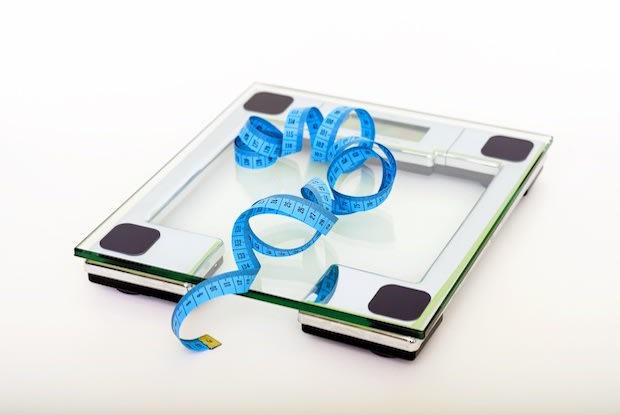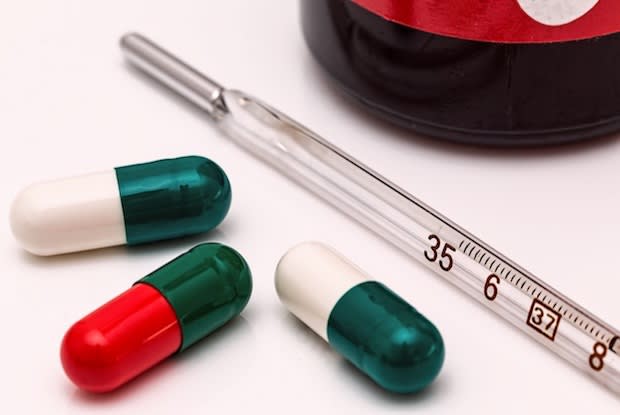Table of Contents
II. Physical Symptoms of Depression
f. Worsening Health Conditions
What is Depression?
Depression is a very common mood disorder that affects more than 17 million American adults. [1] Depression causes many symptoms that affect how a person thinks and behaves and can cause patients to feel sad, empty, hopeless, or anxious. While many people may go through periods of feeling this way, depression is a long-term condition. In order to be diagnosed as having depression, you must have been suffering symptoms on most days for at least two weeks.
While depression can be a serious condition, it is treatable. There are many different antidepressant medications, including Prozac (fluoxetine), Cymbalta (duloxetine), and Wellbutrin XL (bupropion). These medications can help relieve your symptoms when taken regularly. It is important to seek help if you feel that you may have depression as the condition can worsen without treatment.
While the mental symptoms of depression are well known, this condition can also affect you physically. Keep reading to learn more about the effects of depression on your physical health.

Physical Symptoms of Depression
a. Chronic Pain
Depression can cause unexplained aches and pains in several different areas of the body. These pains can be long-lasting and debilitating. They can include headaches, muscle pains, back pain, joint pains, and breast tenderness. This can then become a vicious circle as feeling chronic pain can worsen your depression and other depression symptoms. One study showed that people with depression have 60 percent more likely of having back pain than those without depression. [2]
It is not understood how depression and physical pain are connected and how they influence each other. It is theorized that the cause of the pain may cause or trigger depression. This would mean it is not depression causing aches and pains, but aches and pain-causing depression. Another thought is that people that have depression may have a lower pain threshold than others, making them more likely to be affected by lesser aches. [3]
b. Weight Loss or Weight Gain
Depression can affect your appetite and nutrition in different ways. Appetite changes caused by depression can lead to unintended or unexplained weight loss or weight gain. This can then lead to other health conditions, including diabetes and heart disease. [4]
One reason for weight gain can be ‘emotional’ or ‘comfort eating.’ Some people suffering from depression may resort to eating unhealthy foods as a way to feel better. Over time, this can cause weight gain, which in itself may worsen feelings of depression.
However, depression can also cause unexpected weight loss. This may be caused by bowel symptoms, loss of appetite, lack of energy, or motivation to prepare or eat meals. Additionally, people that already have an eating disorder like anorexia often suffer from mental illness, such as depression. [2] As a result of affecting your appetite, depression can also cause problems with your digestive system. This can lead to physical symptoms, including nausea, constipation, diarrhea, stomach aches, and cramps. Depression is often a result of an imbalance of neurotransmitters, such as serotonin and norepinephrine. These neurotransmitters are chemicals in the brain that help control our mood. However, serotonin is also produced in the gut and plays a major role in the function of the digestive system. It is thought that the imbalance of serotonin that causes depression may cause problems with your digestive system. [2] As well as affecting your digestive system, neurotransmitters affect sexual arousal. People with severe depression may find it more difficult to become aroused and more difficult to have an orgasm. Some antidepressant medications can also reduce sexual desire in both men and women. A specific type of antidepressants, SSRIs (selective serotonin reuptake inhibitors), may affect the physical quality of a man’s erection. [5] Depression can impact your body’s immune system. Although the exact link is not known, there does seem to be a connection between depression and inflammation. As well as depression, this link also seems to connect inflammation with chronic stress. Depression and chronic stress can weaken your immune system, which then increases your risk of developing infections and diseases. People with depression are more likely to develop autoimmune disorders and other inflammatory conditions, including arthritis, type 2 diabetes, and irritable bowel syndrome. [6] Along with causing physical symptoms, depression can also worsen existing health problems. Patients with chronic health conditions may notice their symptoms worsening after developing depression. [2] Additionally, people that have depression may find it more difficult to follow the treatment plan for their pre-existing condition, thereby increasing the risk that their conditions will worsen. Anyone that has depression, should seek help from their doctor. The content in this article is intended for informational purposes only. This website does not provide medical advice. In all circumstances, you should always seek the advice of your physician and/or other qualified health professionals(s) for drug, medical condition, or treatment advice. The content provided on this website is not a substitute for professional medical advice, diagnosis, or treatment.
c. Digestive System Problems
d. Sexual Changes
e. Weakened Immune System

f. Worsening Health Conditions
